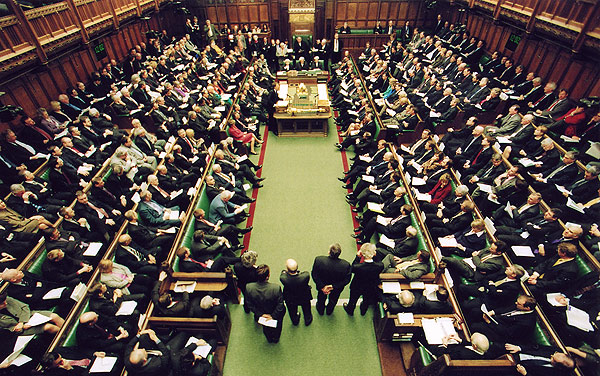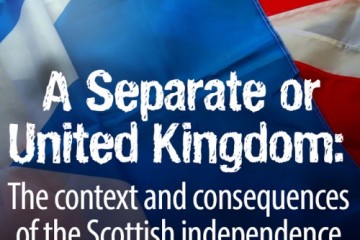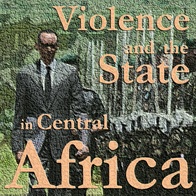
Why the Fixed-term Parliaments Act should not be repealed
The Coalition introduced the Fixed Term Parliaments Act in 2011. Now some Conservative MPs want to repeal the Act. But Fixed Term Parliaments are good for UK democracy and the Act should stay. When the current coalition government introduced the Fixed-term Parliaments Act in 2011, the case appeared compelling: The Government believes that fixed-term Parliaments will have a positive impact on our country’s political system; providing stability, discouraging short-termism, and preventing the manipulation of election dates for political advantage. (“Government response to the report of the House of Lords Constitution Committee on the Fixed-term Parliaments Bill”, 2011, Introduction) Now Tory MPs have changed their minds. This week a group of Tory backbenchers have been mounting a campaign to repeal the …

Immigration controls and their effects on citizenship
UKIP’s recent by election victory proves it: the public are extremely worried about immigration and its impacts on labour markets and communities. The pressure is increasing on politicians of all parties to ‘do something’ about immigration.
But this is nothing new. A quick look at immigration laws in the last decade suggests that there has been no shortage of efforts to do something. The most recent Immigration Act 2014 is the fourth major Act in ten years, and the eighth since 1996. During its nine years in office, Labour created eighty-four new immigration offences (Aliverti 2012). These laws have had significant consequences for non-citizens, consequences that have been the subject of interest across a wide range of social science disciplines.
Often forgotten, though, are the consequences for citizens and the idea of citizenship. Our blog series on migration and citizenship hopes to address this omission.

On Devolution: England should get what England wants – it’s time to find out what that is
‘You can be proud to be English and British’, Labour party leader Ed Miliband told his party conference. Yet the Labour leader ducked the question of England’s place within the next stage of devolution, instead warning that Prime Minister David Cameron’s raising of the issue of ‘English votes for English laws’ could divide the UK.
Labour’s complaint – that the Prime Minister’s raising the question of English votes for English laws was simply a partisan ambush – is unconvincing, because it fails to answer the key questions.
Any party which wants to be part of the conversation needs to decide what it is offering to England and the English.

Paying your soldiers and building the state in post-genocide Rwanda
Ensuring soldiers have legal access to financial resources is crucial for the state to fulfil its primary mission: retain the monopoly of violence. As seen in the Democratic Republic of Congo, difficulties providing soldiers with adequate resources may result in deteriorating discipline, corruption, defection, and human rights abuses.
Rwanda after the genocide faced the difficult task of paying its soldiers. The post-1994 situation made this challenge inescapable. The Rwandan Patriotic Front (RPF) took power in a ruined country. The economy was entirely destroyed, and fleeing officials of the previous regime had emptied state coffers. The resources to pay soldiers were virtually non-existent. In addition, following the RPF victory, many families returned from exile to Rwanda. Consequently, soldiers of the Rwandan Patriotic Army (RPA, the armed wing of the RPF) were not just guerrilla fighters anymore: they became fathers, husbands, or brothers again. This new financial burden on soldiers’ shoulders created a form of indiscipline largely unknown until then in the RPA’s ranks. In addition, the meagre salaries were made in cash, transported by intermediaries from the Ministry of Defence to soldiers, which multiplied the opportunities for embezzlement and the creation of ‘ghost soldiers’. Worse, the opportunities for soldiers to borrow money were extremely limited at the time. Many had no property in Rwanda and consequently no collateral to offer to the few banks still functioning.

The British constitutional reform crisis: a proposal
The UK needs a framework for federalisation. Here’s one suggestion for how this could work. The Problem Britain is on the brink of a catastrophe of which the left seems to be frighteningly unconcerned and unaware. If the Conservatives succeed in implementing English-only days at Westminster, it is likely to transform both Scotland and the rest of the UK into what will in effect be neoliberal dictatorships. Scotland will lose the ability to vote down proposals that would lead to steep cuts in its budget via Barnett consequentials if key services are privatised south of the border. English voters who may have voted Conservative or UKIP for ‘protest’ reasons such as concern about immigration or dislike of the EU could …

So what is a people’s constitutional convention?
Over the past couple of weeks, as the referendum campaign reached its climax in Scotland, a concept has suddenly started springing up all over the place in English political debate: the idea of a constitutional convention. (The Welsh National Assembly called for UK-wide constitutional convention in 2012.) In a letter to The Times on September 10, 19 experts on UK democracy set the proposal out as follows: ‘It is time for a UK-wide constitutional convention, on the lines of recent conventions in Ireland and Iceland, that gives citizens a say in shaping the future. Such a process needs the support of all the political parties, but it must retain its independence from them.’ Calls, similar in content or spirit, have come from Nick Pearce of IPPR,Compass, Rebecca Johnson …

And so it continues…: Rwandan refugees and the latest bilateral politicking in the Great Lakes
The year 2002 marked the initiation of discussions concerning the suitability of invoking Article 1C(5) of the 1951 Convention Relating to the Status of Refugees to deal with the protracted Rwandan refugee caseload. This Article permits a declaration by countries and UNHCR that ‘the circumstances in connexion with which he [the refugee] has been recognised as a refugee have ceased to exist’, and therefore ‘he can no longer…continue to refuse to avail himself of the protection of the country of his nationality.’ In short, the ‘ceased circumstances’ Cessation Clause constitutes an international validation of positive change in post-conflict governance and the meaningful re-establishment of the citizen-state bond, as well as providing a legal normative framework for the repatriation of former refugees.
It is easy to see why the GoR so earnestly pushed for the invocation of the Cessation Clause throughout the Noughties. Internal and external legitimacy was waning under the weight of mounting evidence that domestic politics was partisan and exclusionary at best, authoritarian and murderous at worst. The regime wanted to repatriate potential opponents back to within the state’s jurisdiction. Achieving international consensus over the suitability of refugees returning to Rwanda was thus a potential way to refute accusations concerning human rights abuses within the country, and to exercise more control over possible critics. Controversially, the High Commissioner for Refugees announced support for the cancellation of status for all Rwandan refugees by the end of 2011. After seven years of lobbying and contestation, this therefore constituted a major victory for the RPF.

Iain McLean on Scotland, oil revenues, NATO, and the EU
Professor Iain McLean of Nuffield College, Oxford, co-author of Scotland’s Choices, was interviewed by Bloomberg TV about his research which claims that accounting for changes in oil revenues and transfers from the rest of the UK would leave Scots about £480 per person worse off. He also discusses the implications of independence for currency and banking, and Scottish membership of NATO and the EU.









